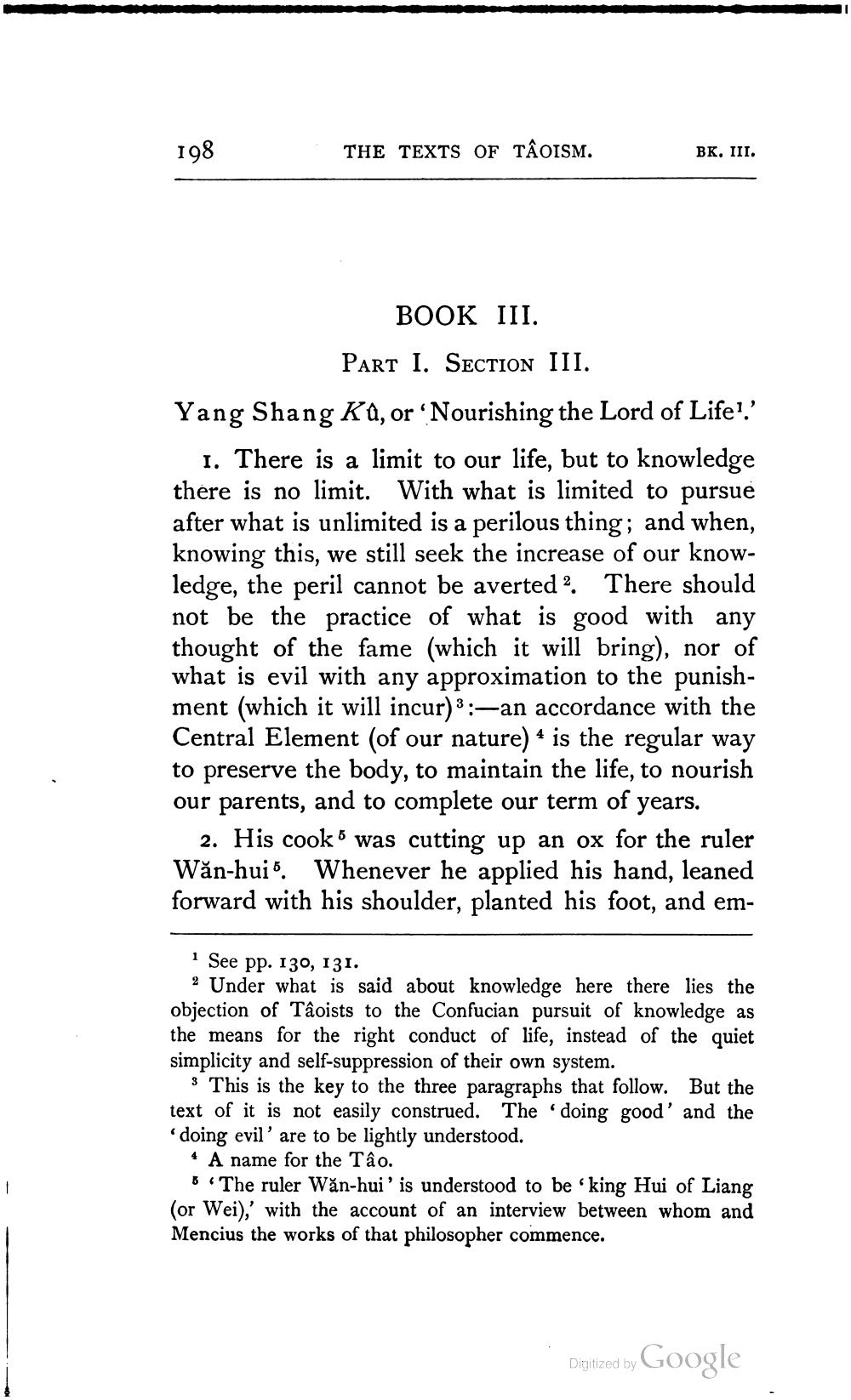________________
198
THE TEXTS OF TAOISM.
BK. III.
BOOK III.
PART I. SECTION III.
Yang Shang Kû, or 'Nourishing the Lord of Life'.'
1. There is a limit to our life, but to knowledge there is no limit. With what is limited to pursue after what is unlimited is a perilous thing; and when, knowing this, we still seek the increase of our knowledge, the peril cannot be averted 2. There should not be the practice of what is good with any thought of the fame (which it will bring), nor of what is evil with any approximation to the punishment (which it will incur)3::-an accordance with the Central Element (of our nature) is the regular way to preserve the body, to maintain the life, to nourish our parents, and to complete our term of years.
2. His cook was cutting up an ox for the ruler Wǎn-hui". Whenever he applied his hand, leaned forward with his shoulder, planted his foot, and em
1 See pp. 130, 131.
2 Under what is said about knowledge here there lies the objection of Tâoists to the Confucian pursuit of knowledge as the means for the right conduct of life, instead of the quiet simplicity and self-suppression of their own system.
(
3 This is the key to the three paragraphs that follow. But the text of it is not easily construed. The doing good' and the 'doing evil' are to be lightly understood.
4 A name for the Tâo.
The ruler Wăn-hui' is understood to be 'king Hui of Liang (or Wei),' with the account of an interview between whom and Mencius the works of that philosopher commence.
Digitized by Google




